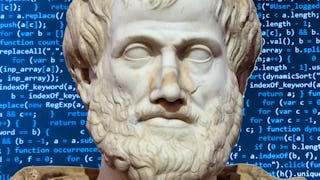What are the ethical considerations regarding the privacy and control of consumer information and big data, especially in the aftermath of recent large-scale data breaches?



(1,193 reviews)
What you'll learn
Examine the ethical and privacy implications of collecting and managing big data.
Explore the broader impact of the data science field on modern society.
Understand who owns data, how we value privacy, how to receive informed consent and what it means to be fair.
Skills you'll gain
Details to know

Add to your LinkedIn profile
9 assignments
See how employees at top companies are mastering in-demand skills

There are 10 modules in this course
Module 1 of this course establishes a basic foundation in the notion of simple utilitarian ethics we use for this course. The lecture material and the quiz questions are designed to get most people to come to an agreement about right and wrong, using the utilitarian framework taught here. If you bring your own moral sense to bear, or think hard about possible counter-arguments, it is likely that you can arrive at a different conclusion. But that discussion is not what this course is about. So resist that temptation, so that we can jointly lay a common foundation for the rest of this course.
What's included
4 videos4 readings1 assignment1 discussion prompt
Early experiments on human subjects were by scientists intent on advancing medicine, to the benefit of all humanity, disregard for welfare of individual human subjects. Often these were performed by white scientists, on black subject. In this module we will talk about the laws that govern the Principle of Informed Consent. We will also discuss why informed consent doesn’t work well for retrospective studies, or for the customers of electronic businesses.
What's included
4 videos1 assignment1 discussion prompt
Who owns data about you? We'll explore that question in this module. A few examples of personal data include copyrights for biographies; ownership of photos posted online, Yelp, Trip Advisor, public data capture, and data sale. We'll also explore the limits on recording and use of data.
What's included
5 videos1 assignment1 discussion prompt
Privacy is a basic human need. Privacy means the ability to control information about yourself, not necessarily the ability to hide things. We have seen the rise different value systems with regards to privacy. Kids today are more likely to share personal information on social media, for example. So while values are changing, this doesn’t remove the fundamental need to be able to control personal information. In this module we'll examine the relationship between the services we are provided and the data we provide in exchange: for example, the location for a cell phone. We'll also compare and contrast "data" against "metadata".
What's included
7 videos2 readings1 assignment1 discussion prompt
Certain transactions can be performed anonymously. But many cannot, including where there is physical delivery of product. Two examples related to anonymous transactions we'll look at are "block chains" and "bitcoin". We'll also look at some of the drawbacks that come with anonymity.
What's included
4 videos1 assignment1 discussion prompt
Data validity is not a new concern. All too often, we see the inappropriate use of Data Science methods leading to erroneous conclusions. This module points out common errors, in language suited for a student with limited exposure to statistics. We'll focus on the notion of representative sample: opinionated customers, for example, are not necessarily representative of all customers.
What's included
10 videos1 reading1 assignment1 discussion prompt
What could be fairer than a data-driven analysis? Surely the dumb computer cannot harbor prejudice or stereotypes. While indeed the analysis technique may be completely neutral, given the assumptions, the model, the training data, and so forth, all of these boundary conditions are set by humans, who may reflect their biases in the analysis result, possibly without even intending to do so. Only recently have people begun to think about how algorithmic decisions can be unfair. Consider this article, published in the New York Times. This module discusses this cutting edge issue.
What's included
6 videos1 reading1 assignment1 discussion prompt
In Module 8, we consider societal consequences of Data Science that we should be concerned about even if there are no issues with fairness, validity, anonymity, privacy, ownership or human subjects research. These “systemic” concerns are often the hardest to address, yet just as important as other issues discussed before. For example, we consider ossification, or the tendency of algorithmic methods to learn and codify the current state of the world and thereby make it harder to change. Information asymmetry has long been exploited for the advantage of some, to the disadvantage of others. Information technology makes spread of information easier, and hence generally decreases asymmetry. However, Big Data sets and sophisticated analyses increase asymmetry in favor of those with ability to acquire/access.
What's included
5 videos1 reading1 assignment1 discussion prompt
Finally, in Module 9, we tie all the issues we have considered together into a simple, two-point code of ethics for the practitioner.
What's included
3 videos1 reading1 assignment1 peer review
This module contains lists of attributions for the external audio-visual resources used throughout the course.
What's included
5 readings
Earn a career certificate
Add this credential to your LinkedIn profile, resume, or CV. Share it on social media and in your performance review.
Instructor

Offered by
Explore more from Data Analysis
 Status: Free Trial
Status: Free Trial
Duke University
 Status: Free Trial
Status: Free Trial
University of Colorado Boulder
 Status: Free Trial
Status: Free Trial

Fred Hutchinson Cancer Center
Why people choose Coursera for their career




Learner reviews
1,193 reviews
- 5 stars
78.05%
- 4 stars
18.09%
- 3 stars
2.34%
- 2 stars
0.58%
- 1 star
0.92%
Showing 3 of 1193
Reviewed on Feb 21, 2021
This course is really amazing for the data science professionals. We get to know so many things pertaining to Data Science and the ethics which should be practiced in this domain.
Reviewed on Jul 31, 2024
Very interesting course. The explanation has been made very easy with examples and references and the quizzes to test one's understanding at the end of each topic.
Reviewed on Mar 2, 2021
The instructor really explained everything well and in detailed manner. I appreciate all the videos and case studies. Those tools help me to understand the subject in a deeper manner.
New to Data Analysis? Start here.

Open new doors with Coursera Plus
Unlimited access to 10,000+ world-class courses, hands-on projects, and job-ready certificate programs - all included in your subscription
Advance your career with an online degree
Earn a degree from world-class universities - 100% online
Join over 3,400 global companies that choose Coursera for Business
Upskill your employees to excel in the digital economy
Frequently asked questions
Access to lectures and assignments depends on your type of enrollment. If you take a course in audit mode, you will be able to see most course materials for free. To access graded assignments and to earn a Certificate, you will need to purchase the Certificate experience, during or after your audit. If you don't see the audit option:
The course may not offer an audit option. You can try a Free Trial instead, or apply for Financial Aid.
The course may offer 'Full Course, No Certificate' instead. This option lets you see all course materials, submit required assessments, and get a final grade. This also means that you will not be able to purchase a Certificate experience.
When you purchase a Certificate you get access to all course materials, including graded assignments. Upon completing the course, your electronic Certificate will be added to your Accomplishments page - from there, you can print your Certificate or add it to your LinkedIn profile. If you only want to read and view the course content, you can audit the course for free.
You will be eligible for a full refund until two weeks after your payment date, or (for courses that have just launched) until two weeks after the first session of the course begins, whichever is later. You cannot receive a refund once you’ve earned a Course Certificate, even if you complete the course within the two-week refund period. See our full refund policy.
More questions
Financial aid available,



